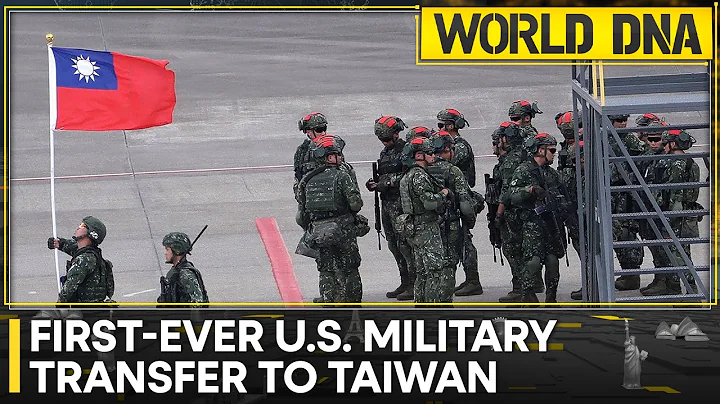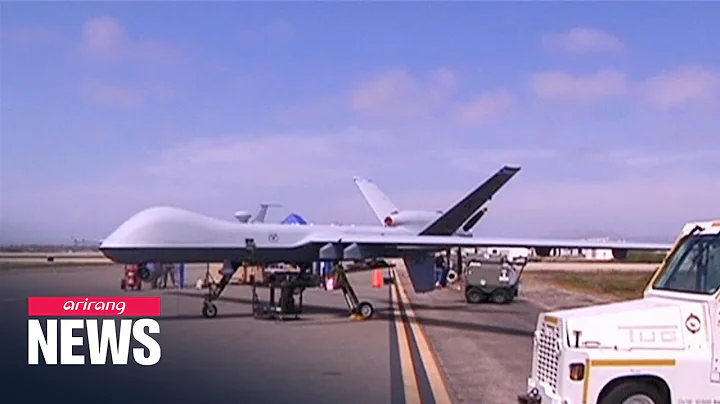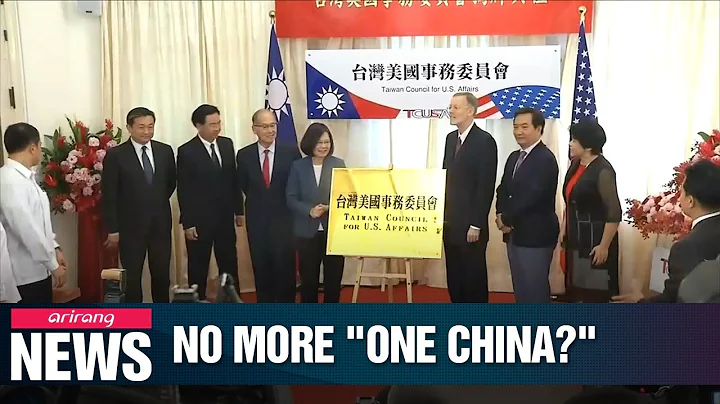Source: China Jingwei.com

Special commentator: Yan Weiyang
U.S. State Department spokesperson Price declared that the United States’ commitment to Taiwan is “rock-solid.” The Democratic Progressive Party authorities also boasted about the "best period" in the history of US-Taiwan relations.
Since the relationship between the United States and Taiwan is "as solid as a rock" and it is the "best period" in history, what has the United States brought to Taiwan? In recent years, in addition to allowing Taiwan to open up American "Laizhu" and "Lainiu" products containing clenbuterol and selling weapons to Taiwan at high prices, the United States has also included Taiwan on the list of currency manipulators and imposed high levies on Taiwanese tire manufacturers. AD, , etc. Look at all these "good things" the United States has brought to Taiwan. The Democratic Progressive Party authorities are dreaming of signing a free trade agreement (FTA) with the United States, but they can only listen to the sound of the stairs...
The Democratic Progressive Party authorities spend a lot of money to buy weapons from the United States, and they are also a "lai pig" for opening up the United States. They obey the United States and do everything they can. So why doesn't the United States sign an FTA with Taiwan?
Although Taiwan is a member of the WTO , it did not join as a sovereign country. Instead, it joined the WTO in the name of "Taiwan, Penghu , Kinmen , and Matsu Independent Customs Zone" (referred to as "Chinese Taipei").
Since the Tsai Ing-wen administration came to power, it has adhered to the policy of "pro-US and anti-China" and hopes to sign an FTA with the United States as one of its goals. Legally speaking, Taiwan has no right to sign FTAs with other WTO members. At present, except for the fact that Taiwan has signed FTAs with its five so-called "diplomatic countries", Taiwan has not signed FTAs with any other WTO member or not, and of course the United States is no exception.
This is because all countries that have established diplomatic relations with China recognize that there is only one China in the world, that the government of the People's Republic of China is the only legal government representing all of China, and that Taiwan is an inalienable part of China's territory. They promise not to establish any official relations with Taiwan and will not Make any official contact. Therefore, regardless of whether it is a WTO member or not, as long as it is a country that has diplomatic relations with China, it is impossible to sign an FTA with Taiwan. Otherwise, it will violate the commitments they have made and the international obligations they should assume.
It can be seen that the United States does not sign an FTA with Taiwan mainly for the following reasons:
First, the United States' long-standing "one-China policy" has not changed, and the United States will not express its views on Taiwan's so-called "sovereignty issues." position. The United States will only treat Taiwan as a pawn for its own strategic interests and continue to maintain unofficial relations and exchanges with Taiwan in order to suppress and contain mainland China.
Second, the trade volume between the United States and Taiwan is not large, and Taiwan’s trade contribution to the United States is only moderate. In 2020, the trade volume between the United States and Taiwan was only US$83.03 billion, and there was a trade deficit with the United States. Therefore, the willingness of the United States to sign an FTA with Taiwan is too high. At the same time, whether Taiwan and the United States can sign an FTA is not just a matter of U.S.-Taiwan relations, but also involves the opinions and attitudes of other countries that have signed FTAs with the United States.
Third, the political risks of signing an FTA between the United States and Taiwan outweigh the economic benefits. If the United States and Taiwan sign a "free trade agreement", the economic development cooperation between the two sides will have a very limited impact, but it will have a great impact on Sino-US politics. Mainland China can regard this behavior of the United States as a change of its one-China policy, a violation of its commitments, and a serious interference in China's internal affairs. Mainland China will inevitably take strong countermeasures. Therefore, there is absolutely no need for the United States to break up with mainland China and take such huge political risks.
Under the condition that the interests of the United States are given priority, even if the United States and Taiwan engage in bilateral FTA negotiations, the United States will fully use its huge market and strong political pressure to make Taiwan make unprincipled concessions. It is not just Taiwan's import of American "lai pigs" The United States wants Taiwan to open up too many things, including health care and drug prices, intellectual property, service industries, and agriculture. The United States will make Taiwan just like buying high-priced weapons from the United States. It can only accept everything according to the order, without the power to bargain, and give more profits to the United States.
The Democratic Progressive Party authorities are anxious to sign an FTA with the United States. The purpose is to "decouple" economically from mainland China. Therefore, regardless of the lives and health of Taiwanese people, they use the opening up of the United States as a "stepping stone" and a letter of nomination to negotiate for the FTA. , obviously this cannot satisfy the "appetite" of the United States.
Objectively speaking, in bilateral trade exchanges, only mainland China, based on the concept of "one family across the Taiwan Strait", is willing to make concessions to Taiwan, including ECFA. This is an impossible result in trade negotiations between Taiwan and other economies around the world. However, the DPP authorities do not cherish the mainland's benefits to Taiwan, but also distort and attack and slander these Taiwan-friendly policies.
For its own interests, the United States will of course continue to play the "Taiwan card" and continue to sell weapons to Taiwan on a large scale to make Taiwan pay more "protection fees." Not long ago, the Biden administration approved for the first time the sale of weapons and equipment to Taiwan worth approximately US$750 million. Of course, the United States will also make some lip-service but no real actions against Taiwan. For example, recently, the U.S. House of Representatives will discuss and vote on the National Defense Authorization Bill for Fiscal Year 2022 next week. The bill recommends that the U.S. Department of Defense invite Taiwan to participate in the 2022 Rim of the Pacific military exercise. There is speculation that Taiwan’s representative office in the United States will be renamed from “Taipei Economic and Cultural Representative Office” to “Taiwan Representative Office.” This is why the United States is constantly playing the "Taiwan card" to arouse the sensitive nerves of the mainland and contain it.
The Democratic Progressive Party authorities have even compiled a "defense budget" of 471.7 billion yuan (NT$) for 2022, a record high. Of the 471.7 billion yuan, 354.7 billion yuan was used to purchase military weapons, including the purchase of land-based Harpoon missile systems from the United States. It can be seen that the DPP authorities are borrowing money to purchase arms from the United States.
The "rock-solid" commitment of the United States to Taiwan is nothing more than a rhetoric used by American politicians to promote Taiwan, and it cannot withstand the scrutiny of practice. The U.S.'s commitment to arms sales to Taiwan is called "rock-solid," and this is true.
Just as Taiwanese netizens sarcastically said, the United States only wants to sell weapons to Taiwan: "When it comes to confrontation, it uses Taiwan as a backstop; when it wants money, it has Taiwan, but it doesn't have Taiwan in normal times"; "It sells scrapped junk weapons to Taiwan at high prices and then transports them away." The "rock-solid" determination of Taiwanese people's hard-earned money will never change."





















